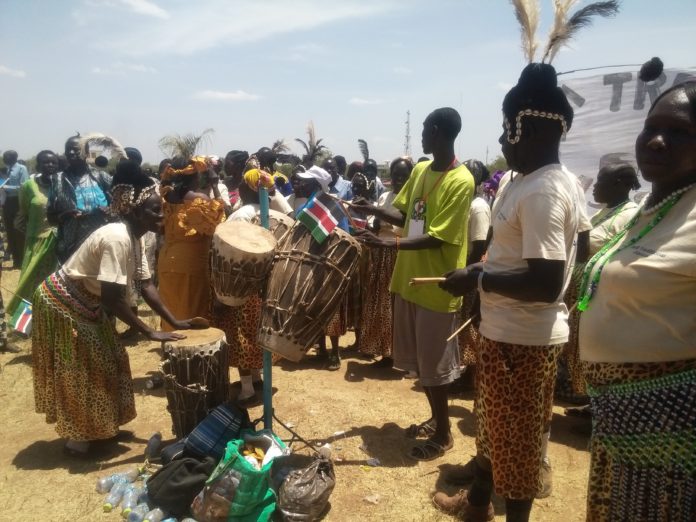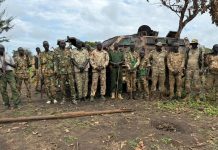
Author: Speak and Tembo FM
In the report of 31 Jan 2018 UNHCR estimates over 17, 000 South Sudanese refugees registered in Uganda in the month of January alone, this year. At the height of South Sudan violent conflict, between 2013 and 2016, this number doubled. However, the influx is seen as a win-win situation, amongst the host communities of Uganda. The hosts argue presence of refugees in their villages brings improved services. Uganda’s Northern district of Agago has provided kilometers of land to allow new arrivals to settle.
CITY POPULATION estimates a quarter a million people live in Uganda’s Agago district. Its residents feel their area is forgotten – and left out in the national budget. They complain they do not have adequate social services. They think sharing their land with refugees might solve some of their problems.
The residents allocated about 40 square kilometers of land to UNHCR, to consider for refugee settlements. The Local Council V Chairperson of the district, Leonard Opiyo, is optimistic.
“The letter documenting the land is ready. We plan to submit it to the office of the Prime Minister so they can survey and verify if the land is suitable for human settlement,” he said. “If verified and approved for settlement, the (refugee) camps would provide security for the locals from Karamajong cattle rustlers and provide employment opportunities for the youths in the area.”
Even though cattle rustling in Karamajong area reduced drastically, such spontaneous activities happen, at times. When they occur there is usually a spill over into Agago district, causing panic.
The office of the Prime Minister (OPM) is a public department entrusted with supervision the matters of refugees, on behalf of Uganda government.
The request from the district, offering free space to be used for South Sudanese refugee settlements, is not the first. Many other requests, by various communities, have been made in the past.
The Vice Chairperson of Agago district, Ocana Morris, believes it is a win-win situation. He thinks the land is going to benefit the refugees greatly. However, he wishes such (refugees) individuals were subsistence farmers.
“The land offered to the refugees is very fertile, and would boost their crop production,” he said. He went ahead to say their presence in the area would boost trade, hence improving livelihoods in Agago.
Nonetheless, the OPM is in charge of approving such requests. They (OPM) sent teams to assess the situation, in the district. The report thereafter, determines if UNHCR will consider setting up refugee settlements or not.
Meanwhile majority of residents are hopeful that, upon consideration of their request, there will be quick development in the district.
Justine Ojara is a resident of Paimol Sub County. He wishes the request were accepted soon. He believes the situation in his village will get better, upon arrival of the first batch of refugees.
“I hope to see things like construction of roads – connecting us to other areas. I hope construction of schools and health facilities; among other services in the area will commence, too,” he said.
Fifteen clans that make up part of the district made the offer. Experts believe the area would host about 200,000 South Sudanese refugees. According to the Refugee Desk Officer of Adjumani district, Titus Jogo, the people of Agago have fulfilled all requirements needed of them.
He says that all paperwork is done – and waiting approval. Once the agreement between the community and the OPM is put in place, UNHCR will immediately embark on setting up settlement camps in the district, he adds.




